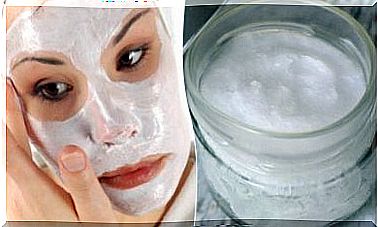How To Regulate Your Melatonin And Sleep Better

Melatonin is the hormone responsible for regulating many biological functions (among them, the process of falling asleep and staying awake). That is why it is so important to regulate your melatonin if you want to rest well and avoid common sleep disorders like insomnia.
We explain how you can do this in this article.
What you need to know about melatonin

First, it is important to know the basics of this important hormone.
Melatonin performs many specific functions such as regulating the sleep cycle. It is produced at night in the pineal gland, which is located in the brain.
Melatonin at night:
- Maintains your heart rate and blood pressure.
- Relaxes your retinas.
- Helps release free radicals.
The gland sends the hormone throughout the body and it is synchronized with your heart rate. When your melatonin levels are normal, you can sleep and rest properly.
The biggest problem with this hormone occurs when its levels drop. This usually happens when you are stressed, following a poor diet, living an overly sedentary lifestyle or exposing yourself to too much artificial light at night.
In addition , melatonin stimulates the production of growth hormone as well as hormones for tissue and muscle repair.
It is an aid to growth and repair, whereby we must sleep more as children than we do as adults. Our bodies also “ask” us for more sleep when we are sick or exercising too much in the gym.
As if all this were not enough, melatonin also performs the following functions:
- Regulates appetite.
- Plays a role in the development and function of the testicles and ovaries.
- Works as a powerful antioxidant.
- Strengthens the immune system by inhibiting certain viruses and bacteria.
Melatonin and serotonin

While we could say that these are “opposite acting” hormones, they work together, therefore we need normal levels of both hormones.
- In the same way that melatonin production increases in the dark, serotonin production increases in light.
- Our retina absorbs sunlight and that light reaches the pineal gland. When this happens, melatonin production stops and the gland begins to make serotonin.
The opposite happens when we are in a dark environment.
It is crucial to understand that artificial light cannot replace the natural function of the sun.
This may explain why we want to stay home or rest more often in the winter, while in the summer we wake up with more energy and do more activities (apart from the temperature of course).
When we do not have adequate serotonin levels, our body begins to crave calories or unhealthy food: cakes, sweets, chocolate, ice cream, etc.
Meanwhile, a lack of melatonin leaves us with insomnia and sleep problems. In the same way, an excess can lead to drowsiness, apathy, weakness, etc.
We should also mention another very “popular” hormone to understand the importance of melatonin and serotonin: c ortisol.
Cortisol is known as the stress hormone. “As the name suggests, it is responsible for raising and reducing stress symptoms. In addition, it also has a remarkable impact on the sleep and awakening processes.
Under stress, there are people who need to sleep more and there are also those who cannot close an eye all night.
This can be explained by cortisol, which balances the production of the hormones responsible for rest or action.
Foods that increase melatonin production
A healthy diet is essential for normalizing melatonin levels and for sleeping the 7 to 8 recommended hours each night.
Above all, tropical fruits, such as pineapple or lemon, as well as oranges are recommended.
You can also help your body produce more melatonin by eating:
- Dried fruit
- Egg
- Fish
- Legumes
- Oats and barley
- Corn
- Rice
To improve your melatonin levels even more, add these to your plate:
- Tomatoes
- Potatoes
- Red wine
- Dairy products
- Tuna
Habits for regulating melatonin levels
In addition to eating a balanced and healthy diet, we recommend some habits that can be helpful in smoothing melatonin levels:
1. Sleep in a dark room
Your room should have shutters or curtains that block the light from entering. This includes street lighting.
Dim light signals to the brain that “it’s time to sleep”. A dark room ensures a more comfortable and fulfilling sleep.
2. Do not watch television before going to sleep

Aside from the bright screen, keep in mind that certain scenes, sounds or news “awaken” the mind and prevent it from entering a dormant state.
This is exactly why it is a good idea not to have a television in your bedroom to regulate your melatonin. The same goes for phones. Use them for a maximum of one hour before going to bed.
Training in the evening
Exercise is great for your health and no one can do without it. But when you exercise in the evening, your body and mind stay in “readiness” for longer, making it harder to get tired.
It will be harder to wake up in the morning if your body does not have enough time to repair the damage caused by the physical activity.
It is better to finish all physical activity earlier in the day to get a proper rest.









